- Home
-
Overview
- Study Guide
- The Single Most Important Idea
- Mission Statement
- War Is Not Inevitable keynote speech
- Capstone Essay: "To Abolish War"
- An Action Plan
- The Nine Cornerstones
- How Far We Have Already Come
- The Secret Ingredient
- The Vision Thing
- How Long It Will Take
- What You Can Do
- The AFWW Logo Explained
- Examples of War Expenses
- Biological Differences
- What Makes People Happy
- Map of Non-warring Cultures
- Cornerstones
- Videos
- Books
- Blog
- Project Enduring Peace
- About
- Related Projects
- Contact
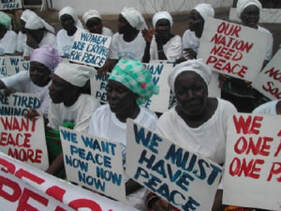 Liberian Women's Peace Movement Liberian Women's Peace Movement Liberian Women Rock - by Judith Hand Are you a skeptic, quite sure it would be impossible to abolish war? Maybe you think there is no way for a nonviolent strategy to succeed in changing how we live for the better if it means ending war. Skeptics tend to feel nonviolence can’t work for a variety of reasons. In a great many cases it’s because they’re unaware of successful applications. The media do not place much emphasis on nonviolent successes. A remarkable contemporary example comes out of Liberia, a small country in West Africa. 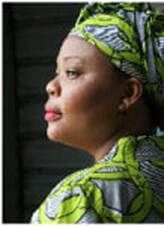 Leymah Gbowee Leymah Gbowee Liberia isn’t a “natural” African nation. It was formed when freed slaves from America returned to Africa at the end of the U.S. civil war. This movement didn’t last very long, but it resulted in a country with a constitution, a democracy, and a name. Things did not go well. Over time, Liberia degenerated into a tyrannical dictatorship, most recently under the presidency of Charles Taylor. In 1999, a “second civil war” broke out. This set off the barbaric use of rape, mutilation, and murder, something seen elsewhere in Africa as well. Some studies indicate that 90% of Liberian girls and women would experience rape in the lifetime. After eight years of this mayhem, social activist Leymah Gbowee had a dream one night and when she awoke, she decided to call the women of her church together to pray for the end of the war. By the end of the meeting the women had pretty much decided that something more than prayer was necessary. They decided to begin a campaign, a nonviolent campaign, in which they would seek to have an audience with Taylor, to convince him to join in peace negotiations. They would wear white T-shirts and turbans, they would stake out the road along which his caravan drove each day, and they would stake out the market. They would not give up until Taylor conceded to see them. Then a woman stood up to say that, the fact was, she wasn’t a Christian. She was a Muslim, and she knew a lot of Muslim women who felt exactly the same way. Women of the two faiths joined together and began their “action.” 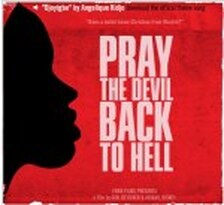 It was said of Charles Taylor, who put on a great show of piety, that he was so evil that he could “pray the devil out of hell.” An inspiring film entitled “Pray the Devil Back to Hell,” documents how things worked out, including how the women of Liberia held their men hostage until a peace agreement was signed. [This website provides an educational, detailed viewing guide to the film, indicating as the film progresses how the actions of the women are illustrating the best practices of a nonviolent social movement.] But that’s not the end of the story. When it came time for the next election, the women of Liberia helped elect Harvard Educated Ellen Johnson-Sirleaf as the first elected women head of state on the African continent. 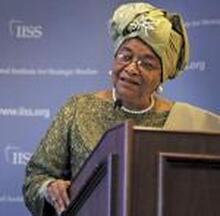 Ellen Johnson-Sirleaf Ellen Johnson-Sirleaf At this time (2009), Johnson-Sirleaf and Liberia’s men and women struggle to build on this wonderful transformation in a land that is bitterly poor and crippled with a debilitating history of strife. But clearly, a determined and savvy application of nonviolence could cut through a nasty, brutal, violent civil war even in this day and age. Harvard professor Gene Sharp, in his book Waging Nonviolent Struggle: 20th Century Practice and 21st Century Potential, is among a number of writers who document the uses and successes of nonviolent direct action movements like those of the Liberian women.
1 Comment
|
Follow Me on Facebook
If you'd like to read my take on current affairs, or get a sense of what amuses me or I find educational or beautiful, do a search and follow me, Judith Hand, on Facebook. About the AuthorDr. Judith L. Hand. Dr. Hand earned her Ph.D. in biology from UCLA. Her studies included animal behavior and primatology. After completing a Smithsonian Post-doctoral Fellowship at the National Zoo in Washington, D.C., she returned to UCLA as a research associate and lecturer. Her undergraduate major was in cultural anthropology. She worked as a technician in neurophysiology laboratories at UCLA and the Max Planck Institute, in Munich, Germany. As a student of animal communication, she is the author of several books and scientific papers on the subject of social conflict resolution.
Categories
All
Archives
November 2019
|
A Future Without War
Believe in it. Envision it. Work for it.
And we will achieve it.
Believe in it. Envision it. Work for it.
And we will achieve it.
AFWW is continually developed and maintained by Writer and Evolutionary Biologist Dr. Judith Hand.
Earth image courtesy of the Image Science & Analysis Laboratory, NASA Johnson Space Center. Photo Number AS17-148-22727 eol.jsc.nasa.gov
©2005-2019 A Future Without War. All rights reserved. Login
Earth image courtesy of the Image Science & Analysis Laboratory, NASA Johnson Space Center. Photo Number AS17-148-22727 eol.jsc.nasa.gov
©2005-2019 A Future Without War. All rights reserved. Login
- Home
-
Overview
- Study Guide
- The Single Most Important Idea
- Mission Statement
- War Is Not Inevitable keynote speech
- Capstone Essay: "To Abolish War"
- An Action Plan
- The Nine Cornerstones
- How Far We Have Already Come
- The Secret Ingredient
- The Vision Thing
- How Long It Will Take
- What You Can Do
- The AFWW Logo Explained
- Examples of War Expenses
- Biological Differences
- What Makes People Happy
- Map of Non-warring Cultures
- Cornerstones
- Videos
- Books
- Blog
- Project Enduring Peace
- About
- Related Projects
- Contact

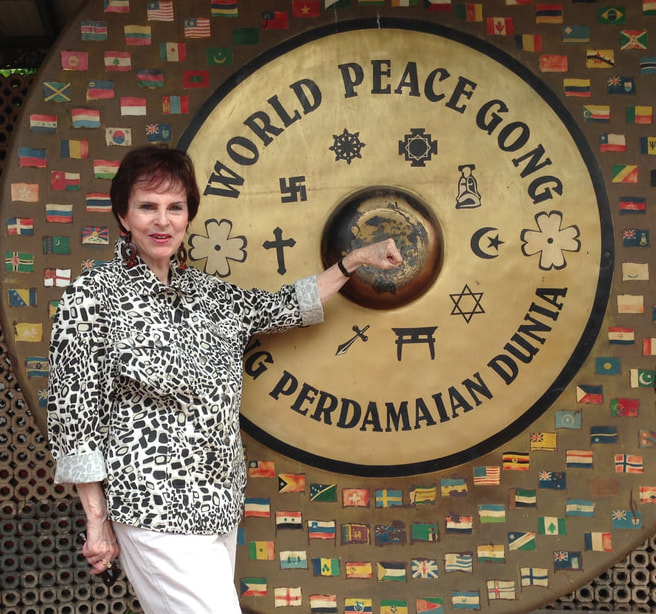
 RSS Feed
RSS Feed